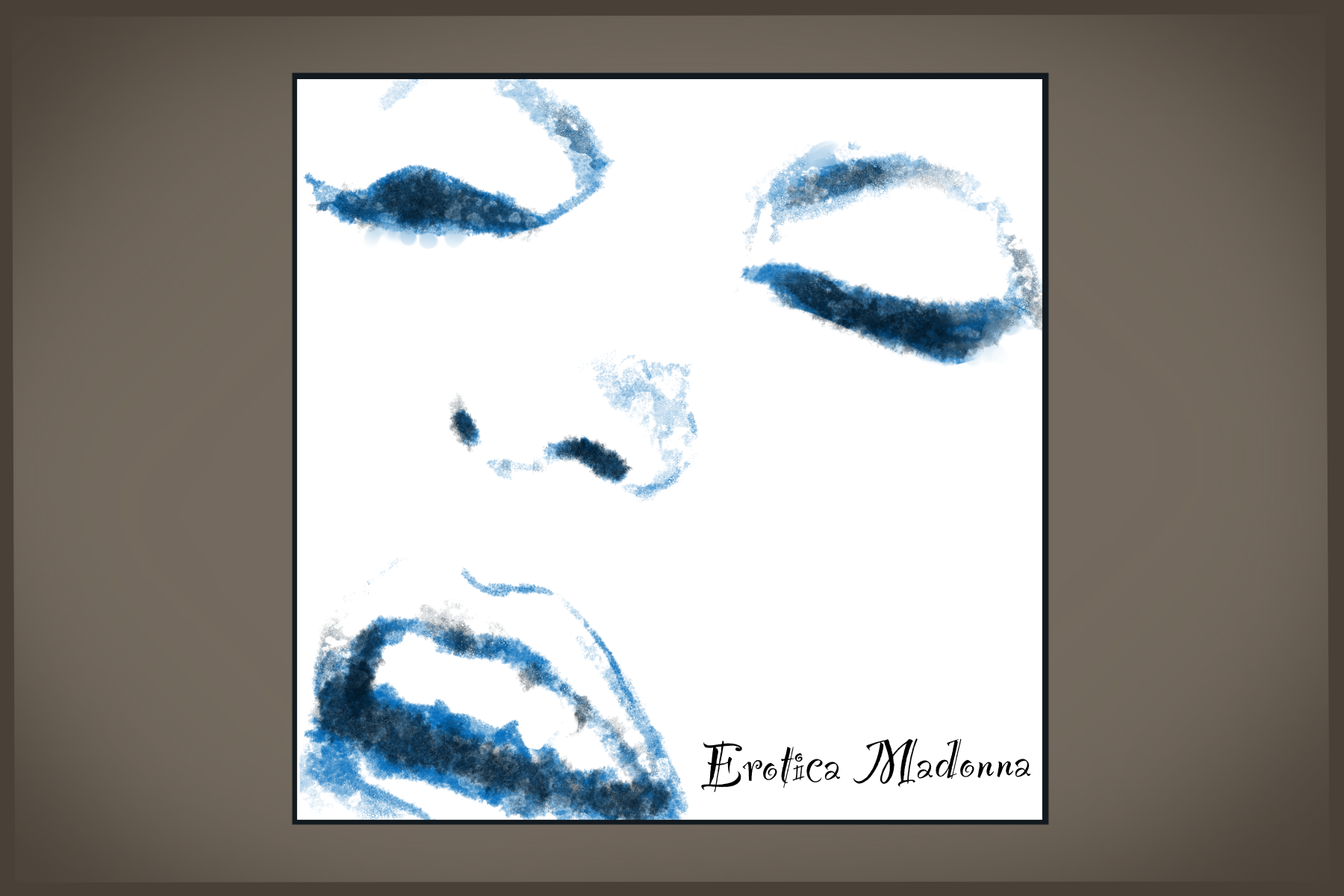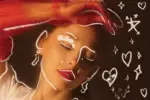“My name is Dita; I’ll be your mistress tonight,” proclaims Madonna at the beginning of her fifth studio album, “Erotica.”
By today’s standards, the playfulness found in “Erotica” comes across as mildly sensual at its most extreme. But by 1992’s standards, Madonna was pushing a sexual agenda that Americans were not interested in or ready for. By the start of the ’90s, Madonna was undeniably the most famous pop star in the world and was a veteran at overcoming controversy.
While her 1989 album “Like A Prayer” dealt with themes of family, religion and domestic violence, “Erotica” centered on the open expression of sexual desires via Madonna’s alter-ego, Dita. In October 1992, Madonna released “Erotica” alongside an accompanying coffee table book titled “Sex.” The 128-page book features photos taken by Steven Meisel, showing Madonna posing suggestively and fully nude. The book is a companion piece to the album, used to illustrate many of the concepts expressed in the songs. After its release, “Sex” was published in five countries and five languages, with nearly 1 million copies printed. Critics of the book were not kind, suggesting that Madonna went “too far” and crossed a line from which she would not be able to return.
“Erotica” acts as something of a “prelude” to the more explicit content released in the coffee table book, which was more expensive and saw a much more limited release. Unfortunately for Madonna, the public did not grasp this notion and quickly grouped the two projects in their criticism. Because of all the negative press surrounding “Sex,” “Erotica” suffered from bad reviews and decreased sales, and was designated a commercial “flop” despite selling over 160,000 copies in its first week. Of course, Madonna survived the backlash and went on to release several more successful records, but her future seemed much more uncertain at the moment.
Parents were outraged that music with suggestive sexual themes and ideologies could be released and were afraid of the messages it might send to Madonna’s young listeners. Despite the negative attention surrounding the release, the album’s first single and title track, “Erotica,” peaked at No. 3 on the Billboard Hot 100. Though she’d faced controversy with several of her music videos and performances prior, Madonna’s image had never suffered as much until this release.
Compare “Erotica” to Rihanna’s eighth studio album, “ANTI,” which came in at No. 5 on the 2016 year-end Billboard 200 chart. The album received critical acclaim and is regarded by many as Rihanna’s best work because of its genre-bending versatility. Of course, Rihanna has had a successful career of her own and has faced her fair share of scrutiny from the public, but it’s clear that she’s built upon the path Madonna blazed for pop stars decades prior. We can hear similar sensuality (as well as a temptress demeanor) on tracks like “Kiss It Better” and “Sex With Me.”
The comparison is not meant to undermine Rihanna’s artistic individuality. Rather, it is intended to acknowledge the commercial sacrifice Madonna made in 1992 that has enabled Rihanna to sing about explicit concepts and remain successful. Rihanna’s success with songs referencing sex is not something new for her, as evidenced by one of her No. 1 songs on the Billboard Hot 100, 2010’s “S&M.”
Rihanna isn’t the only artist in recent years to find success with the themes mainstreamed by Madonna. Even “WAP” by Cardi B and Megan Thee Stallion —which spent four weeks atop the charts despite the song’s explicit sexual references — would likely not have found the success it did without Madonna. Though Madonna has had little influence on rap music and culture, she has most certainly made it possible for women to be praised for embracing their sexuality, and even find success with it. Taking it one step further, Ariana Grande’s 2020 song “34+35” centers around sexuality and went on to reach the second spot on the Hot 100.
Without Madonna daring to release “Erotica,” musicians today — especially female artists — would most likely not be able to express sensuality or sexual desire in their work and still remain successful and in the public’s good graces. In all actuality, “Erotica” comes across as relatively tame and modest to the modern listener’s ear. Sure, song titles such as “Deeper and Deeper,” “Why’s It So Hard” and “Secret Garden” all sound sexually suggestive, but their contents address concepts of love, oppression and intimate but genuine romance. “I can’t help falling in love; I fall deeper and deeper the further I go,” Madonna sings on “Deeper and Deeper,” making clear the song’s message is much less explicit than its title.
In a 1992 interview for MTV, Madonna herself emphasized the importance of consuming her art in its complete form, not as fragments that don’t illustrate the whole picture. She explained, “The most important thing is that I say things I wanna say in my music or whatever expression that may be — whether that’s writing a book or songs.” The public only saw a pop star desperate for attention and perhaps too eager to reveal her sexual desires. However, considering the many overt messages of sexuality in today’s music, it seems that “Erotica” has set a precedent. “Erotica” was not a sexual exposé but a woman’s attempt to take control of her sexuality and not be ashamed of it.
With an increasing number of celebrities using social platforms like TikTok to assert their relevance in popular culture, many young media consumers only know these figures from their online presence. Whether most young TikTok users only know Madonna for her eccentric online videos is irrelevant. What does matter is her undeniable contributions to popular culture and music throughout her unmatched four-decade career. Not only has Madonna earned the title of “Queen of Pop,” but perhaps everyone should also recognize her as the “original pop feminist” for her empowering contribution: “Erotica.”


















Que merda de capa é essa